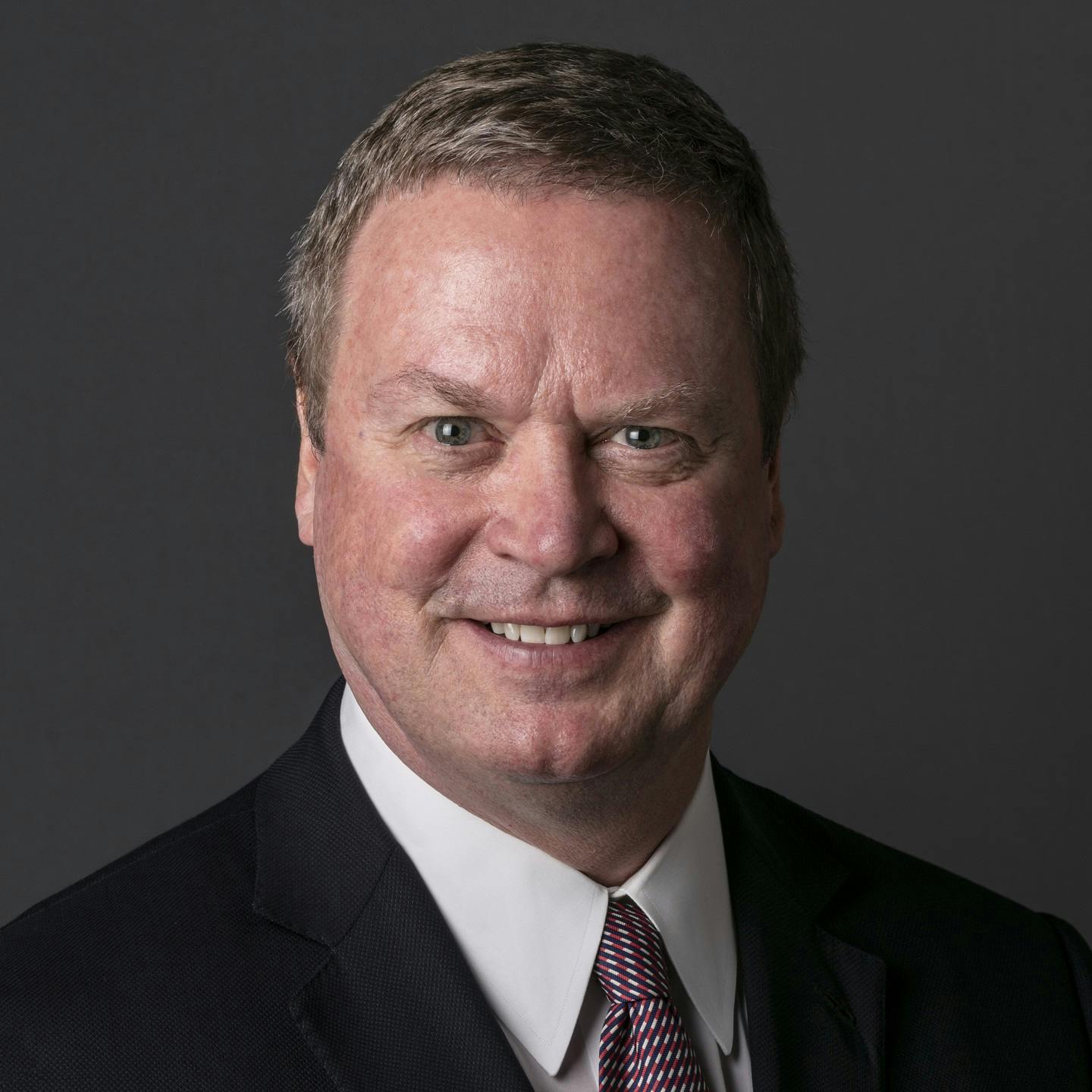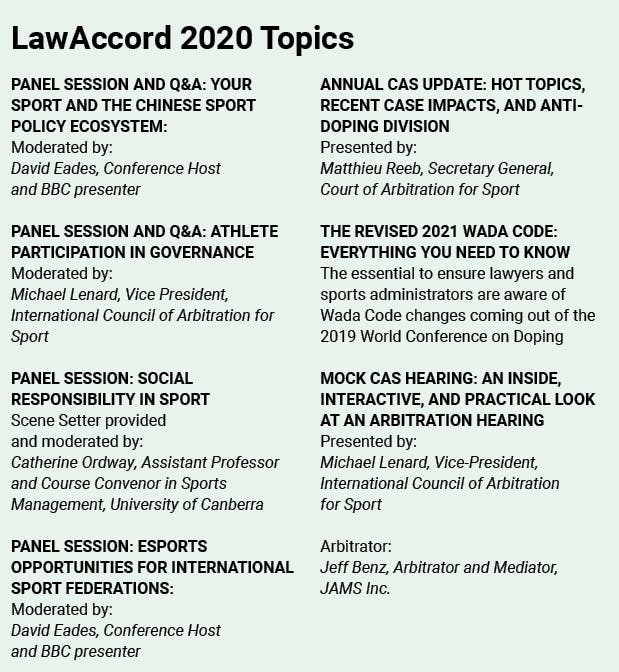 Over the years LawAccord, the specialist legal summit, has developed to become a cornerstone of the Sportaccord Sport and Business Summit.
Over the years LawAccord, the specialist legal summit, has developed to become a cornerstone of the Sportaccord Sport and Business Summit.
New technologies that are changing the dynamics of the business of sport, the emergence of critical doping and safeguarding issues and the geographical spread of major events to new territories and jurisdictions are among the factors which have conspired to create a more complex legal environment for federations and their legal advisors to navigate.
This year’s LawAccord will continue to help those at the heart of global sport to operate effectively by delivering insight into and understanding of a range of key issues they may face today and in the future.
SportBusiness Review asked Michael Lenard OLY, who has played a key role in the evolution of LawAccord, about some of the topics to be discussed in Beijing. Michael is vice-president of the International Council of Arbitration for Sport, the body which oversees the Court of Arbitration for Sport, and president of the CAS Ad Hoc Division for the Tokyo 2020 Olympic Games.
How did you select the topics for this year’s program?
Following the successful 2019 edition of LawAccord in Gold Coast, Australia, we canvassed the SportAccord stakeholders and various expert practitioners in sports law for their ideas about what should be the topics for this year’s LawAccord. The fruits of this effort resulted in this year’s session topics.
The power of SportAccord springs primarily from bringing together the leaders and decision makers in the international sport federations, and we always strive to match that with presenters and panellists who are leaders, decision makers and practitioners in the world of sports law.
Why is it important to have a thorough understanding of the legal framework for sport in the country in order to succeed?
Given the strength of the Chinese economy, that almost half of the 20 largest cities in the world are located in China, and China’s passion for sport, it is no surprise that China has been a prolific host of world class sport events. It also has been an increasingly large consumer of sport programming and goods. China simply cannot be ignored by international sport – and it is not: international sport’s interest in China and China’s interest in international sport continues to grow. Therefore, in order to succeed in China, it is both topical and fundamental for international sport federations and others involved in the business of international sport to understand the Chinese regulatory environment and the legal aspects of how they can “do business” in and with China.
Are athletes an underused resource in governance?
Simply answered, yes. I was a leader of the US Olympic Committee’s athletes commission in the 1980s, a pioneering stage in elite athletes’ push to become integrally involved in all decisions made by the US Olympic Committee. These athletes were successful in their efforts and demonstrated to the US Olympic Committee and its stakeholders that they could and did bring value in their new role, including in some ways and areas that surprised the sport administrators.
Unfortunately, this role faded with the US Olympic Committee’s adoption of a “corporate” governance model. Whether in response to this model or due to the evolution of the European Model of Sport and the North American Model of Sport, which are starting to overlap, finding the appropriate role for athletes has become even more important and perhaps more challenging.
Athletes are restive, and we are seeing increased public discussion and an impassioned call to provide athletes with meaningful substantive involvement in their sports and the decisions which affect them. Our panellists are going to discuss different models of athlete involvement and the roles athletes do, can and should play in the decision-making processes of sport bodies.
How can and do international sport federations use eSports?
Esports have presented a challenge to the established sports ecosystem and to traditional notions of sport. The global esports market has shown a more than 20 per cent compound annual growth in its key metrics and is forecast to surpass $1.8bn (€1.6bn), with more than 200 million players of various games and frequent and occasional viewers of the competitions surpassing 600 million.
This generationally driven phenomena can’t be ignored, and international sport federations have been watching with some trepidation. Although many sports have esports versions, some international sport federations have taken it a step further by creating esport competitions in their sports.
Prior editions of LawAccord have had sessions discussing esports, but this session intends to take a different tack and focus on this relatively new development.
How do the concerns and priorities of an increasingly ‘woke’ modern society impact sports federations and their responsibilities?
The public demand and scrutiny for gender equity, diversity and inclusion in business, government and society continues to grow. For younger generations these expectations have become requirements. If sport does not embrace and deliver gender equity, diversity and inclusion, then it fails to do so at its own peril and courts some form of public action, divisiveness and even crisis. The well-intentioned embrace of these ideals is not enough, and this Session intends to provide practical advice and examples on how to deliver on them.
What can we expect from the CAS Sessions?
My colleague, Matthieu Reeb, the secretary general of CAS, will present an update on the potential impact on international sport federations of any recent CAS cases and discuss any new or upcoming CAS developments. This is a popular staple of LawAccord because the leaders and decision makers in international sport federations can and want to directly hear from and interact with the leaders and decision makers of CAS.
But this year, emanating from our canvassing of the LawAccord stakeholders, we also have something unique: we will hold a “mock CAS hearing”. This session – essentially a scripted play – will present an abbreviated CAS hearing.
We have cast it with an experienced CAS arbitrator and two lawyers experienced in representing parties in front of CAS. We previously presented a mock CAS hearing in a lawyers-only legal seminar, and it was very well received. I hope we get the same reviews for this LawAccord version. Z